Introduction
Delft University of Technology is located in Delft, the Netherlands. It is one of the oldest and largest technical universities in the Netherlands, and one of the most famous technical universities in Europe. It is known as the "MIT of Europe".
Overview
Student size: As of 2022, the school has a total of 27,079 students, including 13,779 undergraduates, 12,876 postgraduates, and 3,154 doctoral students.
Number of employees: In 2022, there are more than 6,600 faculty and staff, including 2,527 academic staff (including 1,259 faculty members at all levels) and 2,556 administrative staff.
Campus area: The campus covers an area of 161 Hectares, the campus is divided into four areas from north to south, the northern area is the School of Architecture, the middle is the student center, library, industrial design building, etc., followed by sports and entertainment venues, and the southernmost is the School of Applied Sciences, Astronomical Engineering Building, etc.
History and establishment time
The school was founded by King William II of the Netherlands on January 8, 1842, and was named "Royal Engineering College". The original purpose was to train civil servants for the colonies of the Dutch East India Company. In 1864, the school was transformed into a polytechnic college and expanded its teaching subjects. In 1905, it was renamed Delft Higher Technical School. In 1986, it officially became the Delft University of Technology.
School Strength
Faculty: It has 2,527 academic staff, including 1,259 teachers at all levels. It has a strong faculty. Many teachers have profound academic attainments and rich teaching experience in their respective fields, providing students with high-quality education and guidance.
Scientific Research Achievements: It has achieved remarkable scientific research results in many fields. For example, in 2020, Ade van Weil and others won the Vanadium Award; in 2023, the school's team launched the "Low-field MRI Scanner" and so on.
Institutional Nature
Delft University of Technology is a public research university.
Educational Philosophy
Committed to pursuing the highest education and research standards based on the values of diversity, fairness and inclusiveness, focusing on cultivating students' innovation, practical ability and teamwork spirit, encouraging students to challenge the future, and cultivating engineering and technical talents with a high sense of responsibility and professionalism for society.
Key Laboratories and Disciplines
Key Laboratories: It has the Delft Reactor Research Institute, the Netherlands Proton Therapy Center, the Qutech Quantum Computing and Quantum Internet Research Center, and the Else Kooi Laboratory, Kavli Delft Nanolaboratory, WetFridges Low-Temperature Nanotechnology Research Facility, Delft High-Performance Computing Center, etc.
Key disciplines: Civil Engineering and Structural Engineering ranks second in the world, and Electronic and Electrical Engineering ranks 16th. Its architecture, mechanical engineering, aerospace engineering, ship and marine engineering, water resources engineering, petroleum engineering and other majors are also at the world's top level.
Faculty
The school has eight colleges, namely the School of Architecture and Built Environment (ABE), the School of Civil Engineering and Geosciences (CEG), the School of Electrical Engineering, Mathematics and Computer Science (EEMCS), the School of Industrial Design Engineering (IDE), the School of Aerospace Engineering (AE), the School of Technology, Policy and Management (TPM), the School of Applied Sciences (AS), and the School of Mechanical, Maritime and Materials Engineering (3ME).
Ranking
Ranked 47th in the 2024 QS World University Comprehensive Ranking.
Ranked 169th in the 2023 U.S.News World University Rankings.
Ranked 70th in the 2023 Times World University Rankings Location.
Expenses
Tuition fees vary by major and degree level. Undergraduate courses taught in Dutch are relatively cheap, while English-taught undergraduate and master's courses cost about 17,000 euros per year. In addition, students also need to pay certain living expenses, including accommodation, food, transportation, etc. The cost of living in the Netherlands is relatively high, but the school will provide some scholarships and grants to help students reduce their financial burden.
Campus
The campus has restaurants, parks, bicycle paths, botanical gardens, new media centers, flight simulators and other facilities. There are also several museums, such as TU Delft Musea, which provide students and faculty with a wealth of cultural and entertainment activities. The campus is centered on Mekelweg, and the teaching buildings of various colleges are distributed on both sides of the axis, forming a unique campus layout.
-
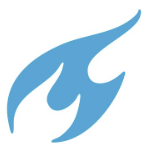
Delft University of Technology
-
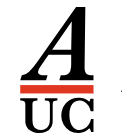
Amsterdam University College
-

University of Amsterdam
-

TIAS School for Business and Society
-
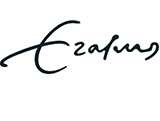
Erasmus University Rotterdam
-
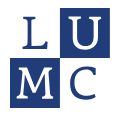
Leiden University Medical Center
-
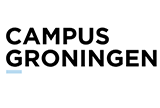
University Medical Center Groningen
-
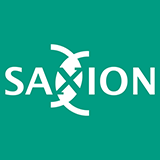
Saxion University of Applied Sciences
-

Academic Hospital Maastricht
-
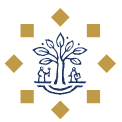
Tilburg University
-

Mesoamerican University
-

Istmo University
-

Mariano Galvez University of Guatemala
-

Regional University of Guatemala
-

Galileo University
-

Francisco Marroquín University
-

Rafael Landívar University
-

University of the Valley of Guatemala
-

University of San Carlos of Guatemala
-

Technological Institute of Tlaxcala Plateau
-

Golfo University
-

Technological University of South Sonora
-

Technological University of Huejotzingo
-

Tizimín Institute of Technology
-

Chilpancingo Institute of Technology
